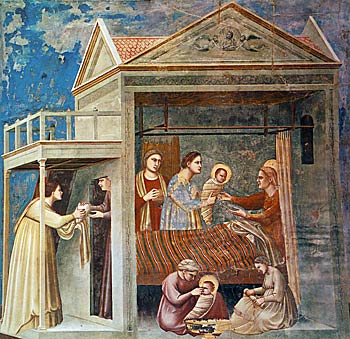Readings:
1 Samuel 1:1–20
Psalm 27:1-5
Ephesians 1:3-14
Luke 1:26–38Preface of the Incarnation
PRAYER (traditional language)
Father in heaven, by whose grace the virgin mother of
thy incarnate Son was blessed in bearing him, but still
more blessed in keeping thy word: Grant us who honor
the exaltation of her lowliness to follow the example of
her devotion to thy will; through the same Jesus Christ
our Lord, who liveth and reigneth with thee and the Holy
Ghost, one God, for ever and ever. Amen.
PRAYER (contemporary language)
Father in heaven, by your grace the virgin mother of your incarnate Son was blessed in bearing him, but still more blessed in keeping your word: Grant us who honor the exaltation of her lowliness to follow the example of her
devotion to your will; through Jesus Christ our Lord, who lives and reigns with you and the Holy Spirit, one God, for ever and ever. Amen.
Lessons revised at General Convention 2024.
Return to Lectionary Home Page
Webmaster: Charles Wohlers
Last updated: 13 July 2024
NATIVITY OF THE BLESSED VIRGIN MARY
8 September
 The Nativity of the Blessed Virgin Mary, the Nativity of Mary, or the Birth of the Virgin Mary, celebrates the birth of the Blessed Virgin Mary.
The Nativity of the Blessed Virgin Mary, the Nativity of Mary, or the Birth of the Virgin Mary, celebrates the birth of the Blessed Virgin Mary.
The modern canon of scripture does not record Mary's birth. The earliest known account of Mary's birth is found in the Protoevangelium of James (5:2), an apocryphal text from the late second century, with her parents known as Anne and Joachim. The Protoevangelium of James describes Mary's father Joachim as a wealthy member of one of the Twelve Tribes of Israel. He and his wife Anne were deeply grieved by their childlessness.
Pious accounts place the birthplace of the Virgin Mary in Sepphoris, Israel, near Nazareth, where a 5th-century basilica is excavated at the site. Some accounts speak of Nazareth and others say it was in a house near the Sheep Gate in Jerusalem. It is possible that a wealthy man such as Joachim had a home in both Judea and Galilee.
The earliest document commemorating this feast comes from a hymn written in the sixth century. The feast may have originated somewhere in Syria or Palestine in the beginning of the sixth century, when after the Council of Ephesus, the cult of the Mother of God was greatly intensified, especially in Syria.
The first liturgical commemoration is connected with the sixth century dedication of the Basilica Sanctae Mariae ubi nata est, now called the Church of St. Anne in Jerusalem. The original church built, in the fifth century, was a Marian basilica erected on the spot known as the shepherd's pool and thought to have been the home of Mary's parents. In the seventh century, the feast was celebrated by the Byzantines as the feast of the Birth of the Blessed Virgin Mary. Since the story of Mary's Nativity is known only from apocryphal sources, the Latin Church was slower in adopting this festival. At Rome the Feast began to be kept toward the end of the 7th century, brought there by Eastern monks.
more at Wikipedia